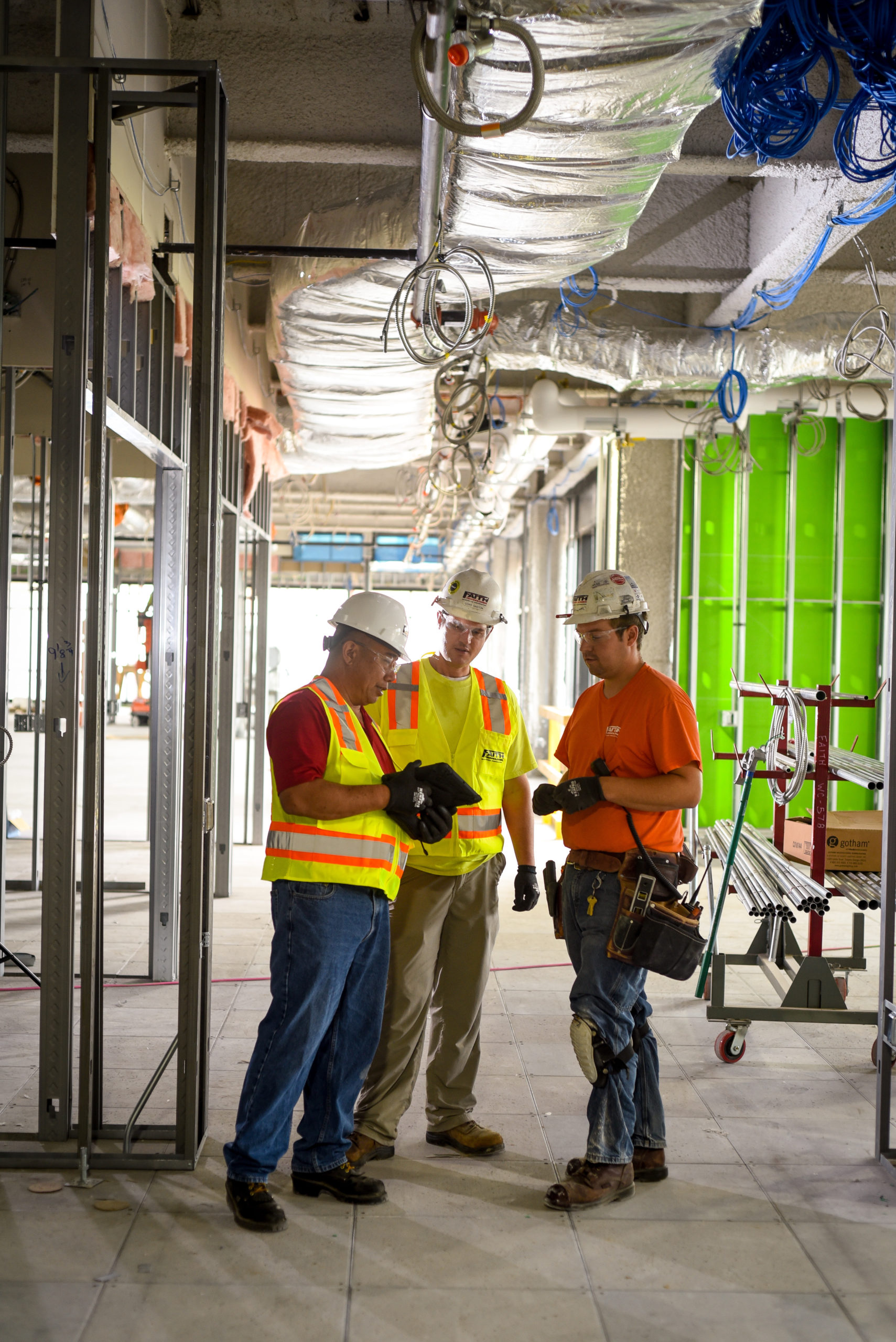08.18.2020
The Importance of a Safety Pre-Walk
 At Faith Technologies, many of us have the same routine when we arrive at work. We drink our coffee, put on our personal protective equipment, walk onto the job site and kick off our day participating in an Operational Risk Management (ORM) session.
At Faith Technologies, many of us have the same routine when we arrive at work. We drink our coffee, put on our personal protective equipment, walk onto the job site and kick off our day participating in an Operational Risk Management (ORM) session.
Faith’s ORM sessions are not typical Job Hazard Assessments (JHA) – pieces of paper that are filled out and turned in for a signature before you start work. Our ORMs are truly team driven, and emphasize how important it is for everyone to go home safely at the end of the day; the same way they arrived at work that morning.
Through this process, we take a moment to step back and ask a few questions. Why are you safe? What steps are you going to take to not get injured today? Or better yet, what is potentially going to injure you today? As a team, we define the day’s scope of work, analyze the existing or potential hazards, develop and implement hazard controls, identify how to perform work within hazard controls and provide feedback to allow continuous improvement.
But what if there were another step? What if a pre-walk took place during the ORM or JHA?
Think about past injuries you’re aware of that were easily preventable. What would have made it easier to prevent a laceration on the leg from a saw? Or a concussion by a falling object from an elevated lift? Or a strained back from picking up heavy material? Completing an ORM session allows us to work as a team to better define and discuss potential hazards; a pre-walk could be the next step to take us beyond project assumptions.
Assuming is saying without proof, and we get comfortable assuming for the following reasons:
- “We’ve done this task before thousands of times!”
- “We know how to use the tools!”
- “We know the game plan!”
- “The task is the same as yesterday, right?”
- “I’m always safe, so the new guy with me is covered, right?”
Pre-walking the scope of work generates more questions and answers. Having a hazard caught rather than ignored as an assumption is critical to preventing an injury. We have preconstruction and safety teams walking through our builds preventing many mistakes, but personally pre-walking our scope of work before the ORM can help eliminate assumptions. Examining and explaining the steps at the specific location per the scope of work can enable more hazards to be caught.
We often hear the saying ‘work hard, play hard,’ and that is exactly what we want our team members to do. We want them to be able to go home safely each day to enjoy their lives. Walking through our work steps before we run supports that safe life.
[Thank you to Spencer Rues, Faith Technologies journeyman, for initiating Faith’s safety pre-walk process.]
If you enjoyed this blog article, please subscribe to stay up to date on the latest industry news from our experts at Faith Technologies.



